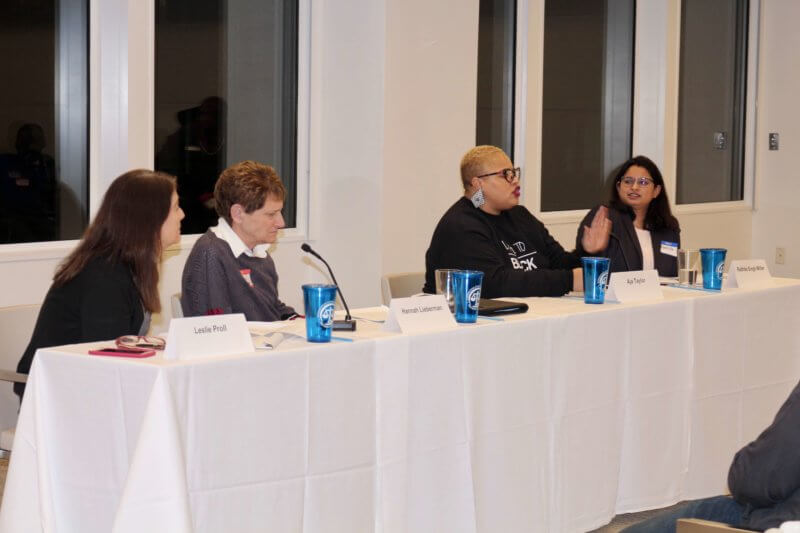
Free to Ride: Transportation as a Civil-Rights Issue
By Alexis Applegate
When someone mentions the Civil Rights Movement, what comes to mind first? For many of us, it’s Rosa Parks’s stand on a bus, which sparked the Montgomery bus boycott and galvanized the broader effort. Yet few of us think about transportation as a civil-rights issue.
While we all get frustrated by local traffic or spotty Metro service, many of us enjoy basic access to transportation and can get to our jobs, stores, and schools. Not everyone is so lucky. Gaps in transportation make it needlessly difficult to earn a living, raise children, and participate in society, and access to transportation often diverges along racial lines.
So on January 10, we continued our Racial Justice Series with a screening and discussion of the award-winning documentary, Free to Ride. Free to Ride documents the years-long fight by citizens of Dayton, Ohio to win approval for a bus route to the much-richer, much-whiter suburb of Beavercreek. Along the way, the movie highlights how (1) previous policy decisions transformed Beavercreek from a mostly rural town to a center of culture and employment, (2) jobs left Dayton for the suburbs, (3) Dayton residents struggled to gain access to opportunities in Beavercreek, and (4) citizens were affected along racial lines.
In addition to teaching history, Free to Ride offers a roadmap for potentially addressing transportation access in other places. For instance, the documentary illustrated the role played by to transportation issues. It illuminated the roles of community organizers from Leaders for Quality and Action in Dayton and the lawyers from Advocates for Basic Legal Equality.
After the movie, we discussed it with Radhika Singh-Miller (National Legal Aid and Defender Association), Hannah Lieberman (Washington Lawyers’ Committee for Civil Rights and Urban Affairs), and Aja Taylor (Bread for the City). We talked about framing transportation access as a civil-rights issue, and how access to public transportation—and especially routes to job centers—affect all aspects of people’s lives. In particular, communities east of the river combat inefficient bus routes, irregular transportation schedules, and other barriers to reaching and participating in opportunities elsewhere in the city.
Given the importance of this issue and how many people it affects, we sponsored this event with several other organizations: Hogan Lovells, the Capital Area Muslim Bar Association, and the Greater Washington Area Chapter of the National Bar Association. We look forward to continuing to work together on this important civil rights issue.
Alexis Applegate is a government lawyer and the co-chair of our Communications Committee.






